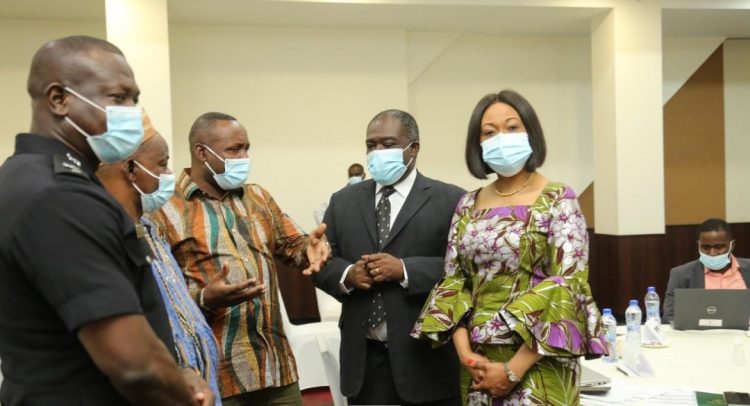The main opposition National Democratic Congress (NDC) yesterday stayed away from the Electoral Commission (EC) 2020 Election Review Retreat in Accra.
It is the second time the NDC is boycotting EC’s programme after the 2020 election petition.
The EC is hold two-day Inter-Party Advisory Committee (IPAC) workshop aimed at assessing the processes leading to the 2020 Election and the Election itself, which the NDC challenged it at the court claiming that it was flawed.
At the Tuesday’s IPAC parley held at the Alisa Hotel in Accra, the NDC failed to send representation as all the other political parties sent their representatives to the event.
Addressing the participants, Chairperson of the Commission, Jean Mensa, said Ghana ought to celebrate the absence of long queues at almost all polling stations in the December Presidential and Parliamentary elections.
She said the celebration was in order because the Commission achieved the feat at the time when advanced democracies experienced long queues, for several days at their polling stations.
Mrs Mensa noted the need to document policies and processes that led to the absence of long queues.
She said that despite the COVID-19 pandemic and its uncertainties, the Commission was able to undertake all electoral processes, from the preparation of new voters’ register with over 17 million persons in 38 days, to the exhibition of the register to the filing of nominations to the election day activities without the spread of the COVID-19 virus and that, no life was lost to COVID-19 as a result of the electoral activities.
The EC boss said through technology, a section of the citizenry was able to check their registration details over the telephone at a minimal cost.
“We need to celebrate the fact that as a country, we successfully employed and deployed high quality robust technology to enhance the credibility of our electoral processes. We successfully used biometric technology to ensure that only unique individuals were registered to vote, doing away with the phenomenon of double registration and multiple voting. It is important to document how this was done,” Mrs Mensa stressed.
She said for the first time in the history of the country, the State solely funded the elections without donor assistance.
Mrs Mensa indicated that the Commission also reduced the cost of the election by some 41 percent compared to the 2016 polls in spite of inflation and hikes in prices.
“As a country, we reduced the cost of elections from thirteen dollars ($13) per person to seven dollars, seventy cents ($7.70) per person.”
She said constructive criticism was vital for the institutional-building and learning process, so was the celebration of successes.


